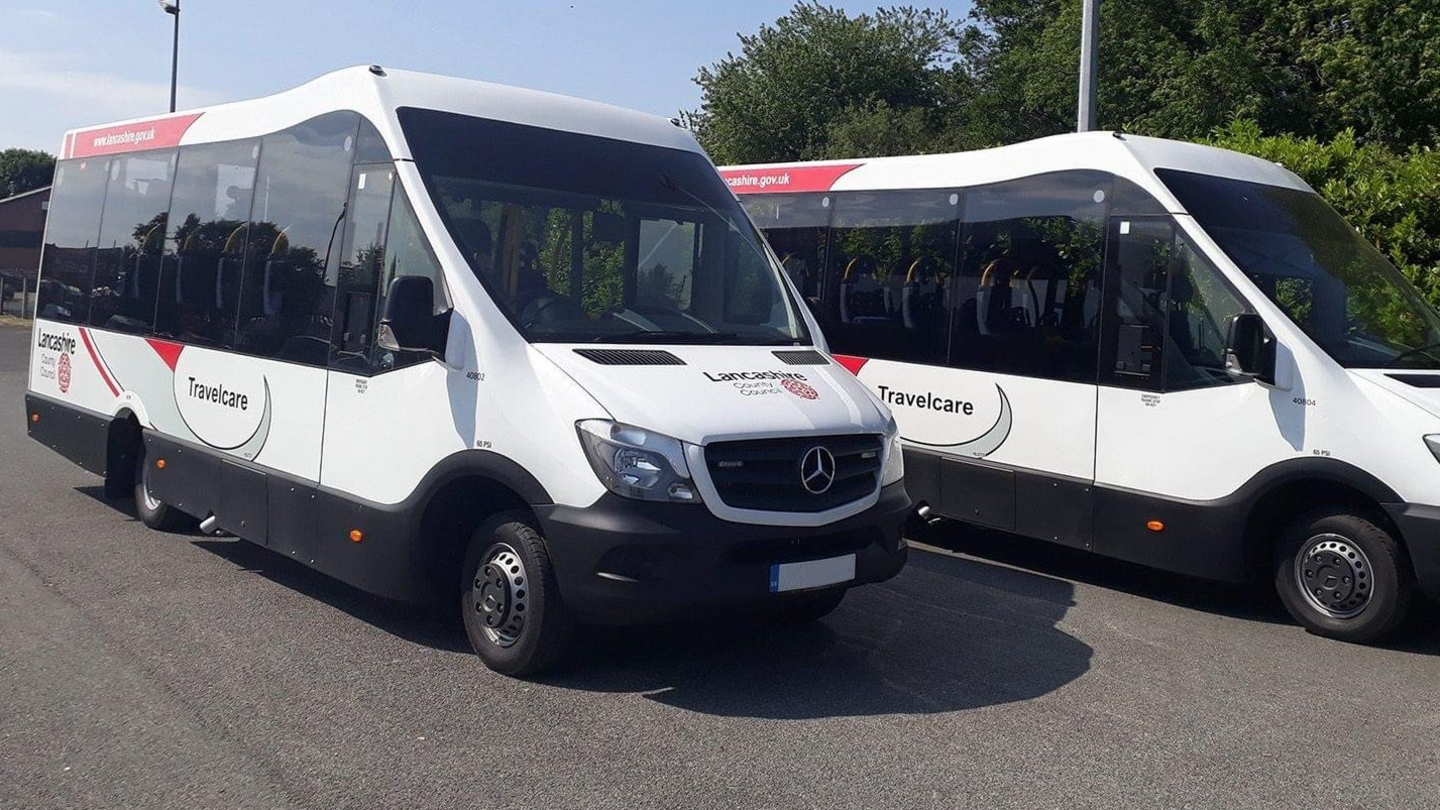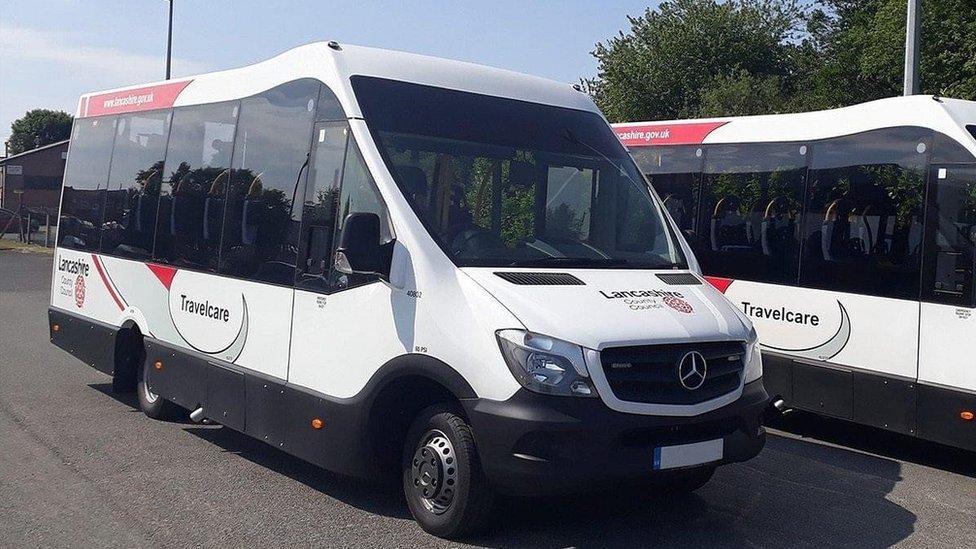School minibuses delayed until October

The fleet was ordered by Lancashire County Council more than a year ago
- Published
A fleet of new minibuses bought by a council to help bring down school transport costs will not come into service until October, despite being ordered more than a year ago.
The vehicles, believed to number around 50, were bought by Lancashire County Council (LCC) to try to reduce the bill for ferrying children with special educational needs and disabilities (SEND) to and from their school gates.
But the work needed to renovate the minibuses for their intended purpose has added further delays as well as what was described in a cabinet report as "long lead times for vehicle delivery".
Councillor Rupert Swarbrick, cabinet member for Highways and Transport, said: "We do have arrangements in place to ensure pupils can get to and from school until this fleet of minibuses is operational."
He added: "Before they are handed over to us the vehicles need to be converted into suitable minibuses by a specialist company. We are working with the various suppliers to ensure that half of the vehicles will be ready to be used at the start of the new school year in September, and the rest will be available soon after that.
It comes as it emerged the county council's broader budget for home-to-school transport in the current financial year was set at £55m, according to the Local Democracy Reporting Service (LDRS).
The authority already has a large in-house fleet of its own vehicles, but has become increasingly reliant on private taxis, largely because of the growth in the number of SEND children entitled to free school transport.
As of December 2024, the SEND element of the home-to-school transport budget for 2024/25 had overspent by £3.1m, around half the level of overspend incurred at the equivalent point 12 months earlier.
The spending plans for this year had been based on an expected 14% increase in demand for SEND transport – but the actual growth is estimated to have been closer to 20%.
Deputy council leader Alan Vincent said at the cabinet meeting where the figures were presented that the authority was coping "as well as most" others.
Get in touch
Tell us which stories we should cover in Lancashire
Listen to the best of BBC Radio Lancashire on BBC Sounds and follow BBC Lancashire on Facebook, external, X, external and Instagram, external and watch BBC North West Tonight on BBC iPlayer.
Related topics
- Published21 April 2024
